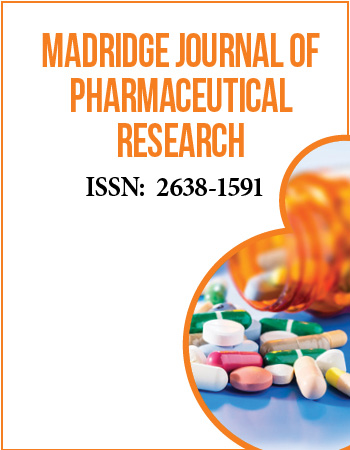2nd International Conference on Pharma & Nutrition, Health and Aging
August 1-2, 2019 Valencia, Spain
Magnesium Supplementation for Athletes: Yes or No?
Coimbra Health School, Portugal
Introduction: Magnesium is the 2nd most abundant mineral in the cells, a cofactor of many enzymes involving in the regulation of muscle contraction, oxygen supply and protein synthesis. The adult daily recommendations are 400-420 mg (male) and 310-320 mg (female). There are no specific recommendations for athletes, but itʼs defended that these should be 10 to 20% higher than these dentary population.
Aim: Determinate the extent to which magnesium supplementation brings benefits for athletes.
Methods: The search was carried out at the Google Academic and PubMed database from 2006 to 2017, using the terms “magnesium supplementation” and “sportsmen” with filters such as “humans”.
Results: In a group of marathon runners supplemented with 126 mg/d, it was found that there is no improvement in muscle function. In subjects supplemented with 250 mg/d, there was no gain in muscle strength. In a group of runners athletes, supplemented with 360 mg/d for 4 weeks, a low serum lactate concentration and lower oxygen consumption were observed. With 250 mg/d supplementation in moderately trained adults, was an improvement in cardio respiratory function and physical performance. Nevertheless, excessive supplementation can cause adverse effects, such as gastro intestinal disorders. The Institute of Medicine defined limit values to UL=350 mg/d.
Conclusion: The same amount of magnesium supplementation may have different results regarding themodality practised. In this sense, in order to have an increase in performance and physical endurance as well as muscle strength and metabolism, supplementation values must be between 250 to 350 mg/d.
Keywords: Nutrition, Magnesium, Supplementation, Sportsmen, Performance.
Biography:
Ana Lúcia Baltazar is a Professor in Coimbra Health School/IPC for the graduated course of “Dietetic and Nutrition”. She is a PhD candidate in “Ciencias de l´alimentacíon”, University of Valencia, Spain with certifications in various post-graduated studies, Food Safety - HACCP auditor and a Master in Occupational Safety. A dedicated and qualified Nutritionist, with more than ten years of experience, a strong technical background, proven in management skills and an “agent for change”. Exceptional experience in monitoring progressive nutrition and food science status and providing training, knowledge of food safety requirements and quality standards in the food sector.


